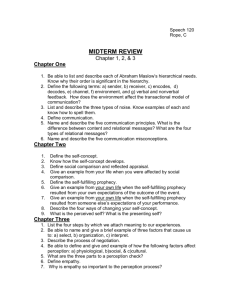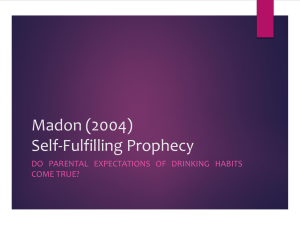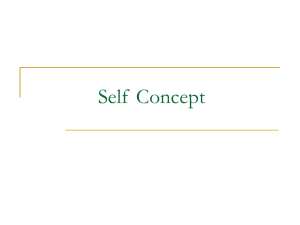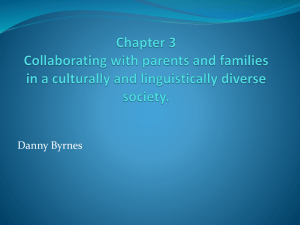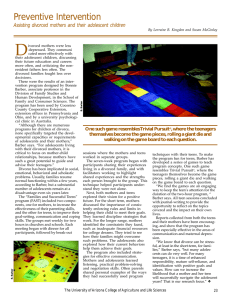Des Moines Register.com 07-06-06 ISU study links mothers' estimates to teen drinking
advertisement
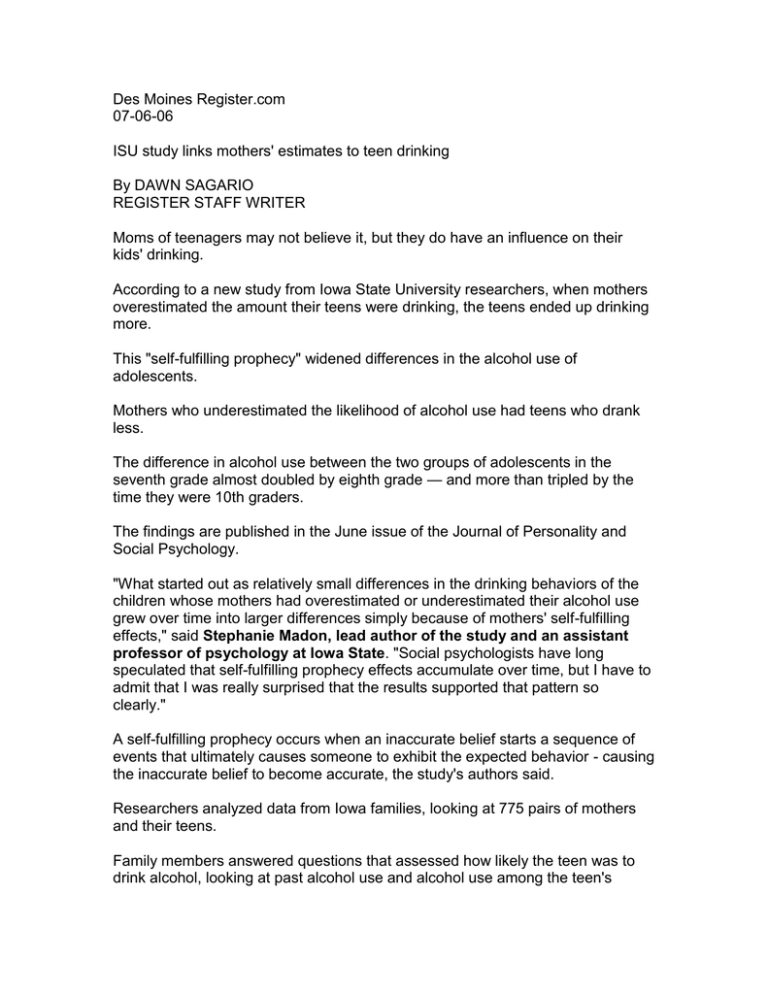
Des Moines Register.com 07-06-06 ISU study links mothers' estimates to teen drinking By DAWN SAGARIO REGISTER STAFF WRITER Moms of teenagers may not believe it, but they do have an influence on their kids' drinking. According to a new study from Iowa State University researchers, when mothers overestimated the amount their teens were drinking, the teens ended up drinking more. This "self-fulfilling prophecy" widened differences in the alcohol use of adolescents. Mothers who underestimated the likelihood of alcohol use had teens who drank less. The difference in alcohol use between the two groups of adolescents in the seventh grade almost doubled by eighth grade — and more than tripled by the time they were 10th graders. The findings are published in the June issue of the Journal of Personality and Social Psychology. "What started out as relatively small differences in the drinking behaviors of the children whose mothers had overestimated or underestimated their alcohol use grew over time into larger differences simply because of mothers' self-fulfilling effects," said Stephanie Madon, lead author of the study and an assistant professor of psychology at Iowa State. "Social psychologists have long speculated that self-fulfilling prophecy effects accumulate over time, but I have to admit that I was really surprised that the results supported that pattern so clearly." A self-fulfilling prophecy occurs when an inaccurate belief starts a sequence of events that ultimately causes someone to exhibit the expected behavior - causing the inaccurate belief to become accurate, the study's authors said. Researchers analyzed data from Iowa families, looking at 775 pairs of mothers and their teens. Family members answered questions that assessed how likely the teen was to drink alcohol, looking at past alcohol use and alcohol use among the teen's friends. Mothers were asked: • How likely do you think it is that your child in the study will drink alcohol regularly as a teenager? • If your child in the study were at a party and one of his or her friends offered him or her an alcoholic beverage, how likely would your child be to just say "no" and leave? • If your child in the study were at a party and one of his or her friends offered him or her an alcoholic beverage, how likely would your child be to drink it? "Our research suggests that the self-fulfilling effects of these stereotypic beliefs may add up over time to produce larger social inequalities between individuals from advantaged and disadvantaged groups," Madon said. test
